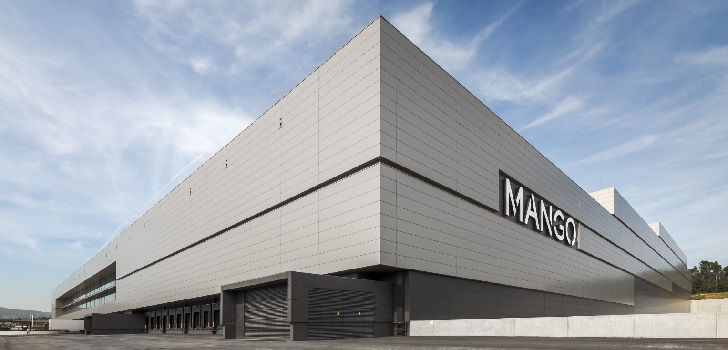Spanish Mango ends investment phase and seeks path to profitability
The Spanish fashion retailer is focused on “continuing its improvement towards profitability” by increasing its positioning, developing its ecommerce, reorganizing its store network and cutting costs.
Mango, on the path back to profitability. After three years in the low, Mango, one of the biggest European retailers is in its way back to profitability after having concluded the investment phase of the last years, according to the documentation sent by the Alyternative Fixed-Income Market (Marf) after the first emission of its debt report in its history.
Marf gave the company the green light yesterday to a payment program for 200 million euros. With this plan the company is looking to diversify its financing sources. Mango has undergone a reorganization process during the last years to face the weak evolution of its sales and, above all, to the fall in its profit.
In 2018, Mango had net losses of 35 million euros, although it managed to improve its gross operating result (ebitda), which stood at 135 million euros. With the results of 2018, Mango sum three years with red numbers, with accumulated losses of more than one hundred million euros.
The debt, meanwhile, stood at 315 million euros at the end of 2018. At the end of that year, Mango refinanced a debt of 500 million euros with its main banks to postpone its loans four more years.
In 2018, Mango achieved a net loss of 35 million euros
The evolution of consumption (which has impacted on sales) and the investments carried out in the reorganization plan have compromised, during the last years, the profitability of the group. Now, the company ends this period and focuses on returning to profitability.
“Once the large investments of the group focused on the renovation of the store network, opening of megastores and the opening the new logistics center, Mango’s strategy is based on several lines of action”, among them the “continuing its improvement towards profitability measured in terms of ebitda”, explained the company.
The levers that Mango will use to improve its profitability combine product with distribution and operations. In this sense, the company will focus on improving brand positioning, increasing its online sales, continuing to reduce its store of stores and cutting its costs.
Logistics investment
Logistics has historically been one of the differentiating elements of Mango, which in 2018 opened a new logistics center near Barcelona “which allows the logistics dedicated to physical stores to be merged in a single space , both in terms of folded garments (product in boxes) and hanging garments (product in hangers).”
According to the company, this center allows the centralization of the product as well as an optimization of storage and distribution costs. With an area of 280,000 square meters, it can manage 75,000 units per hour. Mango also has other logistics centers abroad, in countries like China, South Korea, Turkey, Russia, the United States, Germany and Russia, which provide for its online business as well as its physical stores.
Physical stores
With a total of 15,244 employees at the end of 2018, stores have been another focus of the company’s reorganization plan. Like most fashion retailers in the world, the company has shut some of its stores, mainly unprofitable locations and betting on larger stores to improve its connection with the online channel. Mango has focused on expanding the average dimension of its points of sale, from around 300 square meters in 2015 to around 500 square meters in 2018.
At the end of its fiscal year 2018, Mango was present in 115 countries with a total of 2,183 physical stores, combining directly operated stores with franchises. Of the total stores, 69.9% are in Europe; 18.2% in Asia, 9.3% in America, and 2.6% in Africa.
Spain is the market where Mango has the highest penetration, with 239 directly operated stores, followed by France (121), Turkey (99), Germany (75), Russia (72) and Italy (50). The top ten of major countries are completed by number of stores in the United Kingdom (40), Portugal (30), Holland (18) and Poland (18).
As for franchises, Spain remains in first position, with 148, followed by Germany (130), France (85), Russia (73), Saudi Arabia (57), Chile (55), Israel (50) and Belgium ( 48), in addition to Colombia (48) and the Philippines (38).
Ecommerce
Mango is one of the strongest Spanish retailers in ecommerce, along with Women’secret (owned by Tendam). At the end of 2018, the online channel represented 20% of Mango’s total business, with presence in about eighty countries and with a growth of 31% in 2018.
By markets, Spain contributes 16.13% of Mango’s online business, while Germany represents 15.82% and France 10.17%. Among the most relevant markets for the companys’ ecommerce channel are the United States (6.95%), United Kingdom (5.94%), Turkey (4.45%), Russia (3.93%), China (3.87%) and the Netherlands (3.57%).



info@themds.com
Validation policy for comments:
MDS does not perform prior verification for the publication of comments. However, to prevent anonymous comments from affecting the rights of third parties without the ability to reply, all comments require a valid email address, which won’t be visible or shared.
Enter your name and email address to be able to comment on this news: once you click on the link you will find within your verification email, your comment will be published.